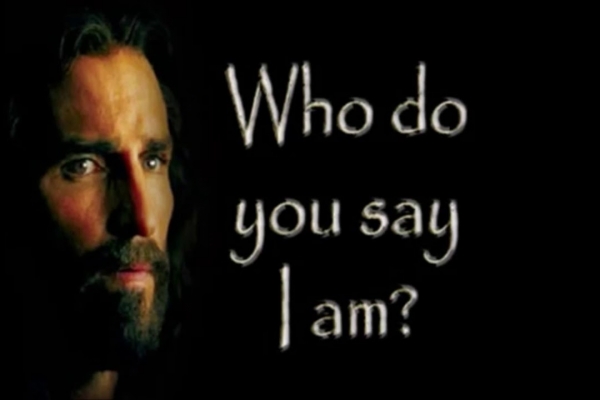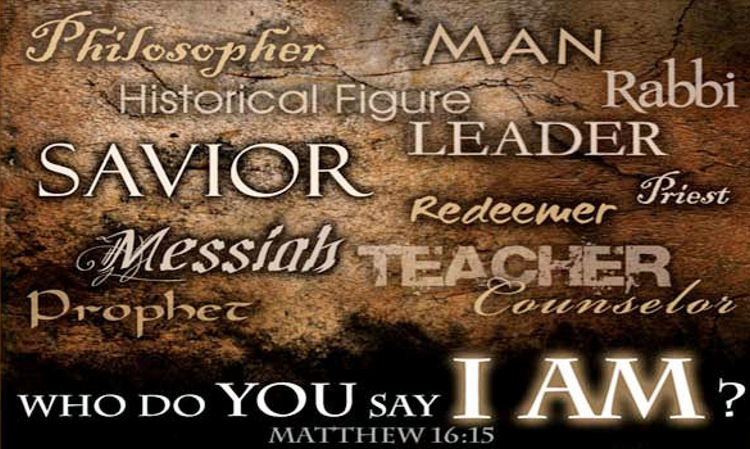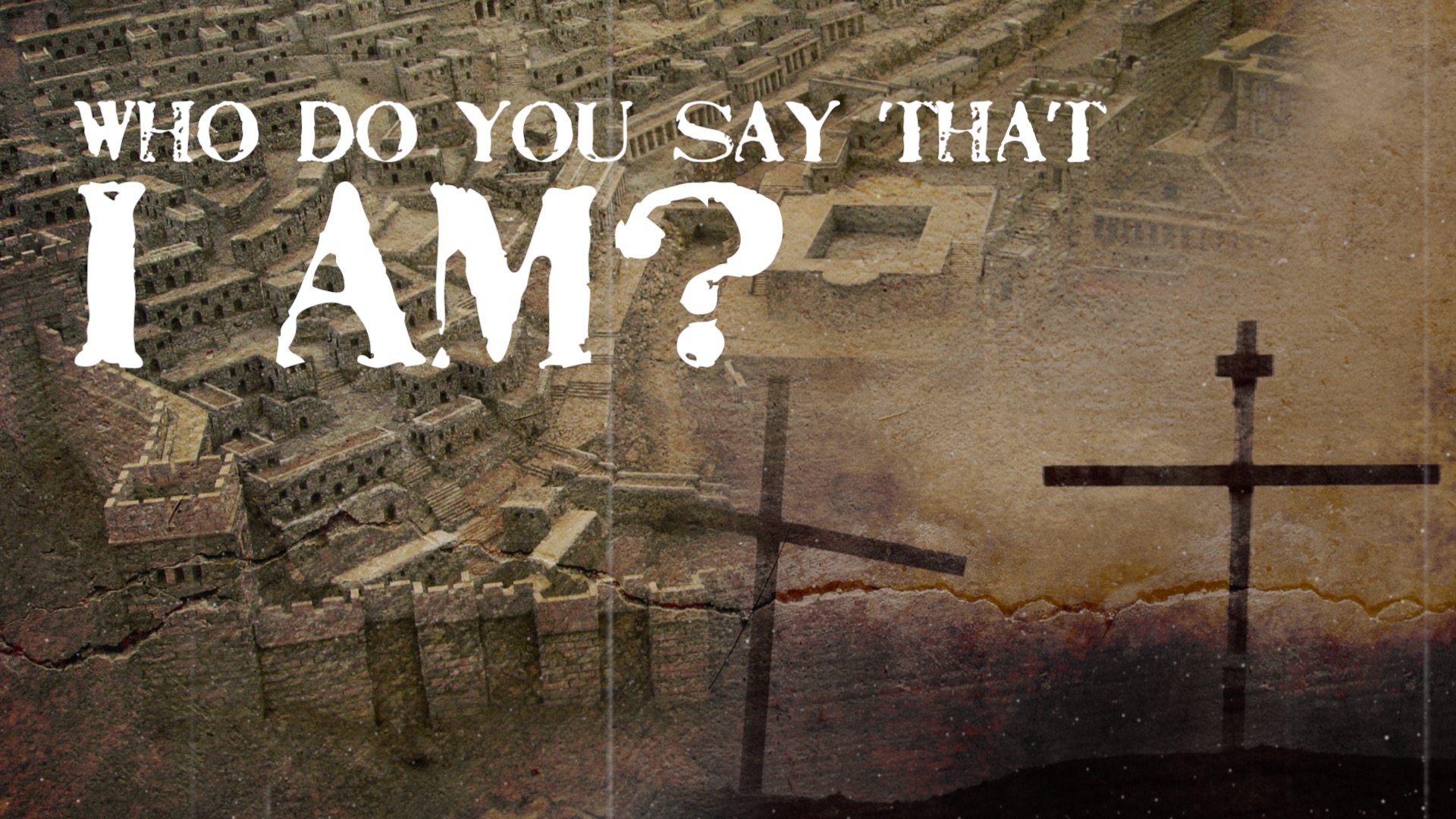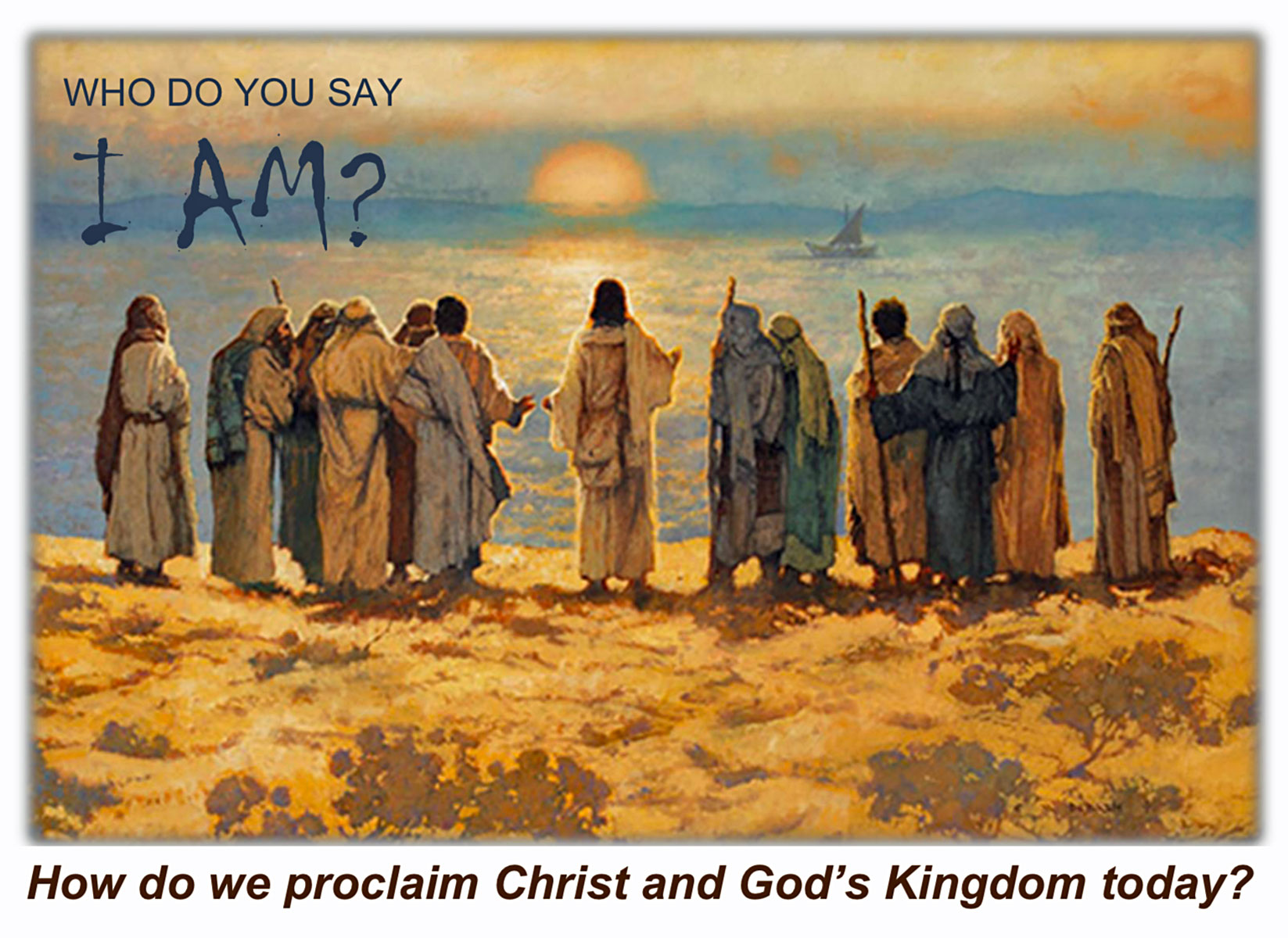
Who Do You Say I Am? Mark 8: 27-35
During the time of Jesus, the people were confused.
They had diverse ideas about him. Some regarded him as a political messiah, a teacher, a healer, wonderworker, prophet, king, and many others too.
In the Gospel this Sunday, Jesus asked his disciples a sort of a survey question: “Who do people say that I am?” He was not really interested in their answer. He was just testing them whether they were affected by the confusing ideas of people about him. His most important question, however, followed the first: “But who do you say that I am?”

They had diverse ideas about him. Some regarded him as a political messiah, a teacher, a healer, wonderworker, prophet, king, and many others too.
In the Gospel this Sunday, Jesus asked his disciples a sort of a survey question: “Who do people say that I am?” He was not really interested in their answer. He was just testing them whether they were affected by the confusing ideas of people about him. His most important question, however, followed the first: “But who do you say that I am?”

This is the same question Jesus asks of us: “Who do you say that I am?”
There are now thousands of religions and sects all over the world, each one preaching about Jesus. But we are not sure whether the Jesus they are preaching is the true Jesus. That is why many people are confused.
There are now thousands of religions and sects all over the world, each one preaching about Jesus. But we are not sure whether the Jesus they are preaching is the true Jesus. That is why many people are confused.
The apostles were fluent when Jesus sought from them the public opinion of him, but were short of words when it came to their personal knowledge of Jesus. It was only Peter that identified him as the Christ. Peter gave the correct answer: “You are the Messiah.”
Peter’s brave act of faith is further clarified by Jesus as a suffering servant. Jesus is the Christ, the Messiah. Jesus reveals who God really is and what God is about, a gentle, non-violent, compassionate and a suffering Messiah.

Peter’s brave act of faith is further clarified by Jesus as a suffering servant. Jesus is the Christ, the Messiah. Jesus reveals who God really is and what God is about, a gentle, non-violent, compassionate and a suffering Messiah.

Who is Jesus for me personally? We are called to answer the fundamental question of our faith: “who do you say I am?” By this Jesus calls us away from the public opinion to personal conviction about his identity. No matter what we like to think, Jesus reveals God as God is. So he is challenging us to go deep to the roots of our faith by making this faith truly personal.
Jesus reveals to us that if we are to accept him as our Lord, we must accept his way of suffering, whenever it comes in our life. There is a link between the personalization of our own experience of Jesus and sharing in his suffering: when we accept Jesus as the Son of God we are also motivated to carry our own cross.

It is by carrying his cross and, dying on it that Christ demonstrated his practical love, charity, generosity and faith in action for us.
Jesus reveals to us that if we are to accept him as our Lord, we must accept his way of suffering, whenever it comes in our life. There is a link between the personalization of our own experience of Jesus and sharing in his suffering: when we accept Jesus as the Son of God we are also motivated to carry our own cross.

It is by carrying his cross and, dying on it that Christ demonstrated his practical love, charity, generosity and faith in action for us.
Jesus emphatically spells out the demands of discipleship: sharing in his responsibility for the human family, even if it means sharing his ‘cross’.
Following him involves commitment and determination. True discipleship, as Jesus reminds Peter, proves itself in a generosity that has been learned in the presence of the Crucified Savior. Practical Christianity means faith in action.
It means accepting to carry our cross humbly and patiently while relying on the same grace that helped Christ.

It is the way of the cross. It is the way of rendering good works and loving service to those in need. It is the way of forgiveness and love, even love of our enemies.
Following him involves commitment and determination. True discipleship, as Jesus reminds Peter, proves itself in a generosity that has been learned in the presence of the Crucified Savior. Practical Christianity means faith in action.
It means accepting to carry our cross humbly and patiently while relying on the same grace that helped Christ.

It is the way of the cross. It is the way of rendering good works and loving service to those in need. It is the way of forgiveness and love, even love of our enemies.

